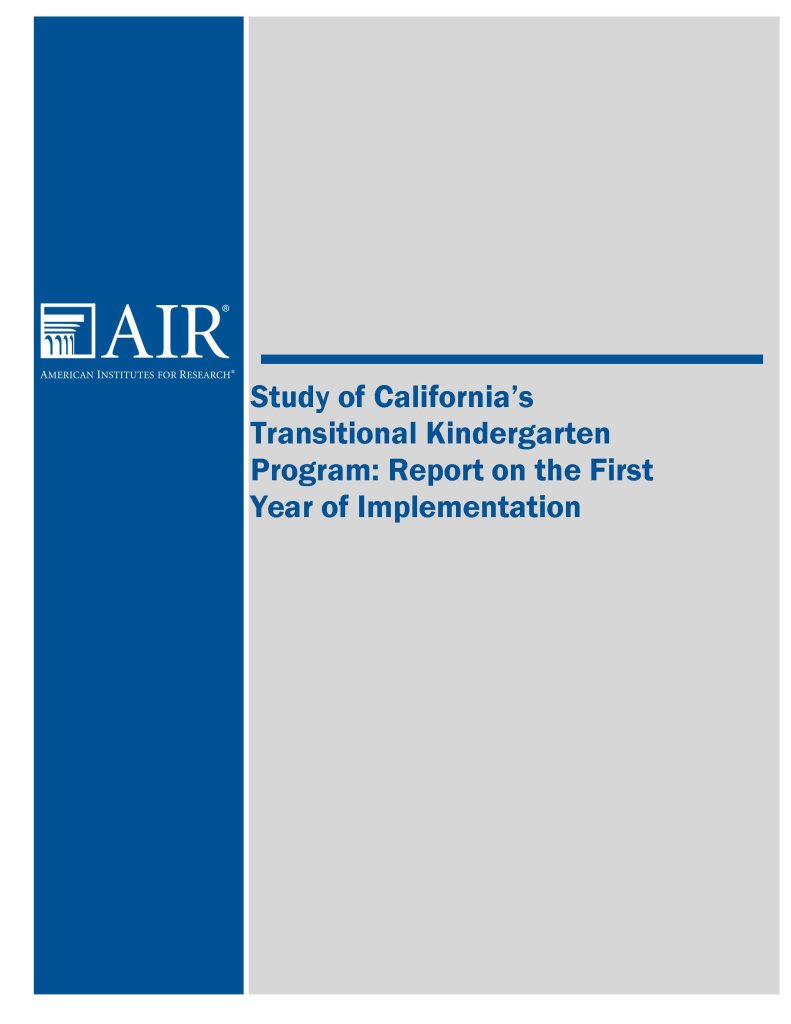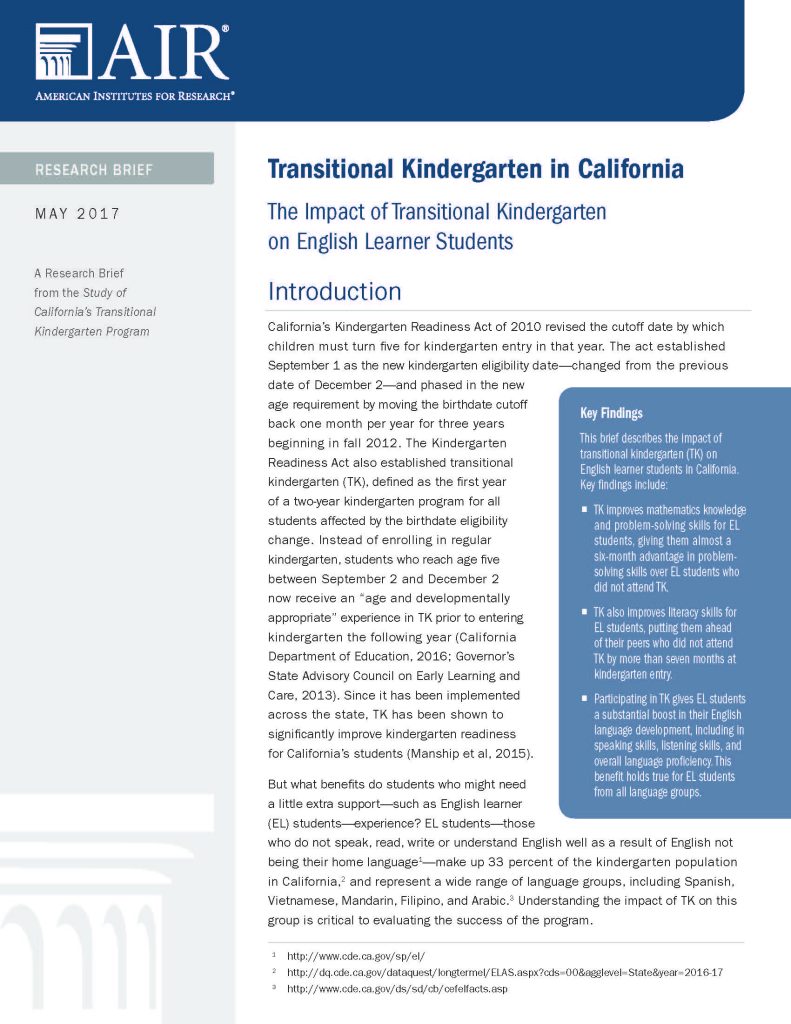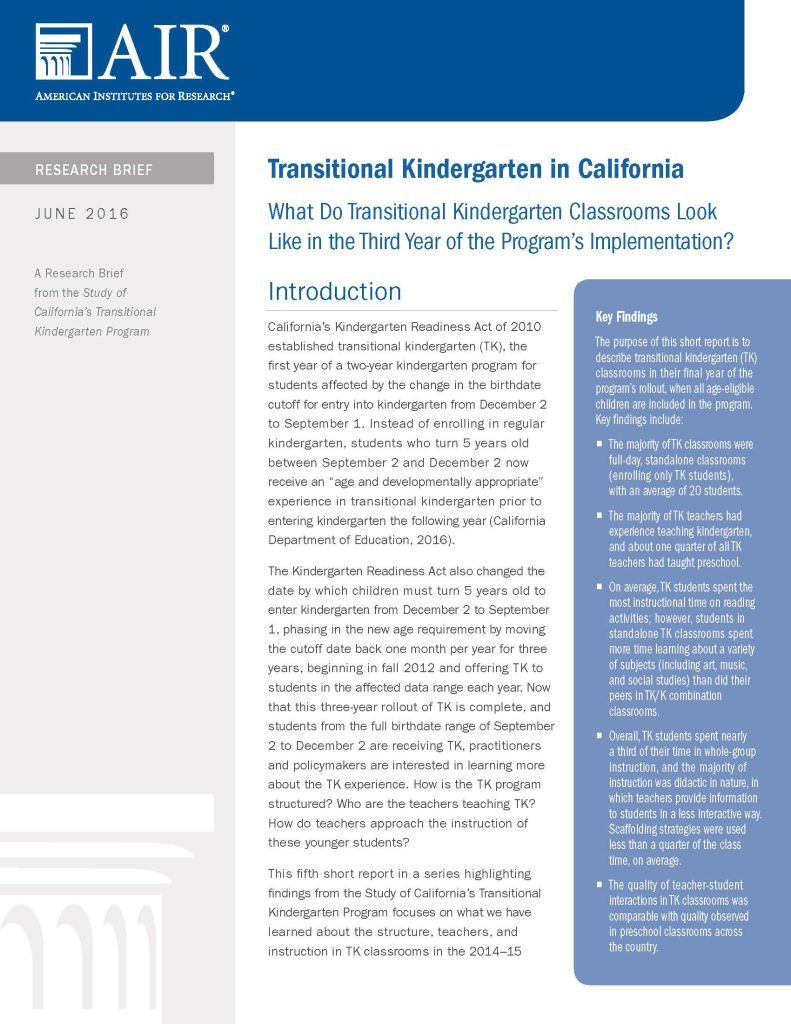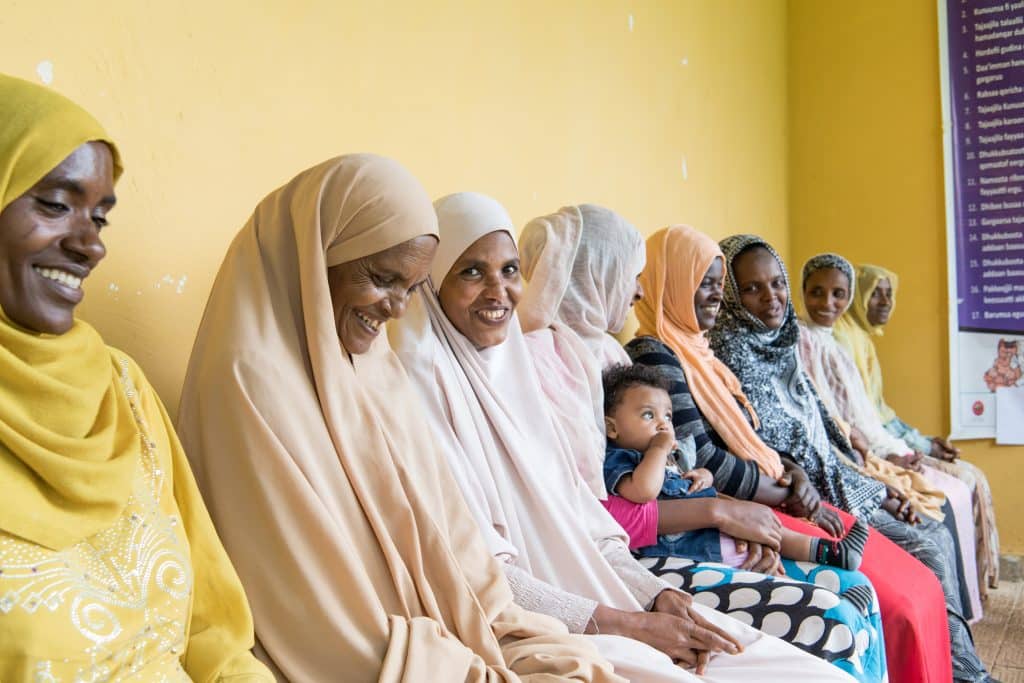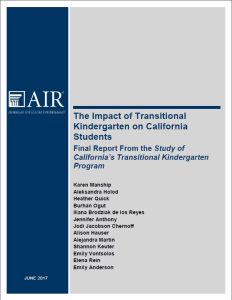
Since 2010, California has been planning and implementing a new grade level, transitional kindergarten (TK), with the goal of promoting school readiness and learning outcomes for students.
TK is the first year of a two-year kindergarten experience for students born between September 2 and December 2. The American Institutes for Research (AIR) examined the effectiveness of the TK program for students entering school for the 2013-14 and 2014-15 school years.
Specifically, the study examined the following questions:
- Does TK participation improve kindergarten readiness in the domains of early literacy/language, mathematics, and social emotional skills?
- To what extent are the impacts of TK sustained through the end of kindergarten?
- How do student outcomes vary by student background characteristics, such as gender, English learner status, or poverty status?
- How do TK programs fare on measures of classroom quality?
- How do student outcomes vary with TK instructional practices?
- How do student outcomes vary by program structure, such as standalone versus combination classrooms?
Among other findings, the study discovered that TK gives students an advantage at kindergarten entry on letter and word identification, phonological awareness, expressive vocabulary, and math skills.
This report builds on prior research conducted into TK in California, including AIR’s 2014 study into the planning and implementation of TK, found here.
